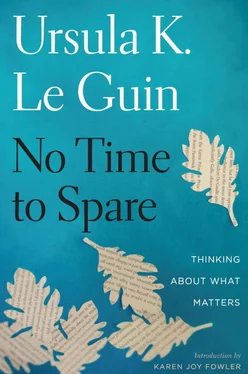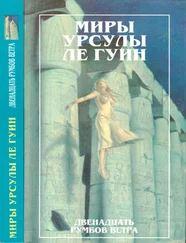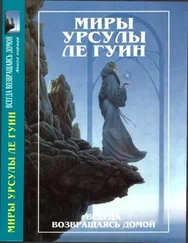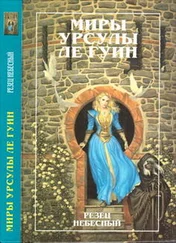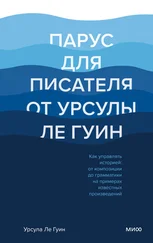I was rapt from the first moments, and by the last scene I could scarcely see the stage for tears of delight.
We went back the next night and had the same radiant experience. There’s now a recording of the Portland Opera performance (Orange Mountain Music, OMM 10091). I have listened to this with deep pleasure and will listen to it again. But I am still certain that the true power of opera, and certainly this opera, is in the actual production, the immediate, live presence of the singers and the interaction of their voices and the music with the sets, lighting, action, movements, costumes, and audience to create a global, irreproducible experience. This is how all the great opera composers have understood their undertaking. Recording, film, all our wonderful instruments of virtuality, catch only the shadow, recall only a memory of that lived experience, that moment of real time.
An opera is a preposterous proposition. It’s almost incredible that any production of any opera ever comes off. To a lot of people, of course, it doesn’t—Tolstoy was one. Philip Glass’s music is also somewhat preposterous. To a lot of people it isn’t music at all. Some of his pieces sound mechanical, even perfunctory to me; but having been deeply moved years ago by the film Koyaanisqatsi, and by his Gandhi opera Satyagraha on stage in Seattle, I’m always ready to hear what Glass is up to now. For Galileo he had a brilliant librettist, Mary Zimmerman, and rose to the challenge. The words and action of the piece are luminously intelligent: they go to the heart of what Galileo’s life and thought mean to us in terms of knowledge, courage, and integrity both scientific and religious, yet they linger also on the humanity of the man who rejoiced in his daughter, rejoiced in thought and argument, rejoiced in his work and his great discoveries, and for his public reward got shame, silence, and exile. It is a grand story, and a dark one: quite right for opera.
I found Galileo completely beautiful. I think it as beautiful in its way as Gluck’s Orfeo is in its. Neither is so dramatically and emotionally huge as much nineteenth-century opera, but both are complete, whole, every element in them entering into a ravishing totality. Galileo has an intellectual grandeur rare in opera, but even that is in the service of making pleasure, true pleasure—the pleasure given by something noble, thoughtful, deeply moving, and delightful.
And this was my first twenty-first-century opera. What a marvelous start!
Just two years later, this March, the Seattle Symphony brought a concert to Portland that included a piece, Become Ocean, they commissioned (and bravo for doing so!) from the composer John Luther Adams.
There are too many composers named John Adams. The one from San Francisco is better known at present, but I’ve found his music increasingly disappointing ever since the curiously brainless and vapid opera Nixon in China. Living in Alaska, John Luther Adams is still marginal not only to mainland America but to mainstream fame. But I believe that will change as his music is heard.
For Become Ocean, the orchestra is divided on stage into three groups with differing instrumentations. All three play continuously, each following its own pattern of tempo, volume, and tonality. Now one group and now another dominates, the ebb and flow of each interpenetrating with the others like currents in the sea. Sometimes they all are on the ebb; again their crescendos overlap until a vast, deep tsunami of music swells over the hearers, overwhelming… and then subsides again. The harmonies are complex, there are no tunes as such, but there is no moment in the work that is anything less than beautiful. The hearer can surrender to the surrounding sound as a ship surrenders itself to the waves, as the great kelp forests surrender to the movement of the currents and the tides, as the sea itself surrenders to the gravity of the moon. When the deep music ebbed away at last, I felt that I’d come as near as ever I will to indeed becoming ocean.
We stood up to applaud, but not many people did. Portland audiences tend to leap to their feet automatically for a soloist, but rise more selectively for mere orchestra. I think the response was to some extent puzzled, maybe bored. Become Ocean is forty-five minutes long. A man near us was growling about it never ending, while I was wishing it never had.
Edgard Varèse’s Déserts came next in the program, a piece that skillfully and faithfully obeys the modernist mandates of discord. Maybe we have at last worked through the period when serious music had to seek antiharmony and strive to shock the ear. Neither Glass nor Adams appears to be following a program dictated by theory; like Gluck or Beethoven, they’re innovative because they have something new to say and know how to say it. They are obedient only to their own certainties.
I came away from both these concerts marveling that while our republic tears itself apart and our species frantically hurries to destroy its own household, yet we go on building with vibrations in the air, in the spirit—making this music, this intangible, beautiful, generous thing.
April 2013
SITTING IN ON a rehearsal is a strange experience for the author of the book the play is based on. Words you heard in your mind’s ear forty years ago in a small attic room in the silence of the night are suddenly said aloud by living voices in a bright-lit, chaotic studio. People you thought you’d made up, invented, imagined, are there, not imaginary at all—solid, living, breathing. And they speak to each other. Not to you. Not anymore.
What exists now is the reality those people build up between them, the stage-reality that is as ungraspable and fleeting as all experience, but more charged than most experience with intense presence, with passion… until suddenly it’s over. The scene changes. The play ends.
Or in a rehearsal, the director says, “That was great. Let’s just take it again from where Genly comes in.”
And they do: the reality that vanished appears again, they build it up between them, the doubts, the trust, the misunderstanding, the passion, the pain…
Actors are magicians.
All stage people are magicians, the whole crew, on stage and behind it, working the lights and painting the set and all the rest. They collaborate methodically (ritual must be methodical, because it must be complete) in working magic. And they can do it with remarkably unlikely stuff. No cloaks, no magic wands or eyes of newt or bubbling alembics.
Essentially they do it by limiting space, and moving and speaking within that space to establish and maintain a Secondary Creation.
Watching a rehearsal makes that especially clear. At this point, some weeks before first night, the actors wear jeans and T-shirts. Their ritual space is marked out with strips and bits of tape on the floor. No set; their only props are a couple of ratty benches and plastic bowls. Harsh lights glare steadily down on them. Five feet away from them, people are moving around quietly, eating salad out of a plastic tub, checking a computer screen, scribbling notes. But there, in that limited space, the magic is being worked. It takes place. There another world comes into being. Its name is Winter, or Gethen.
And look! The king is pregnant.
October 2010
A SENTENCE IN a story has been troubling me. The story, by Zadie Smith, was in The New Yorker of October 11. It’s in the first person, but I don’t know whether it’s fiction or memoir. Many people don’t even make the distinction, now that memoir takes the liberties of fiction without taking the imaginative risks, and fiction claims the authority of history without assuming the factual responsibilities. To my mind the I of a memoir or “personal essay” is a very different matter from the I of a story or novel, but I don’t know if Zadie Smith sees it that way. And so I don’t know whether she’s speaking as a character in fiction or as herself when toward the end of her tale of a seemingly unrepaid loan to a friend she says, “The first check came quickly but sat in a pile of unopened mail because these days I hire someone to do that.”
Читать дальше
